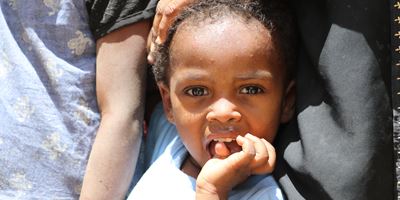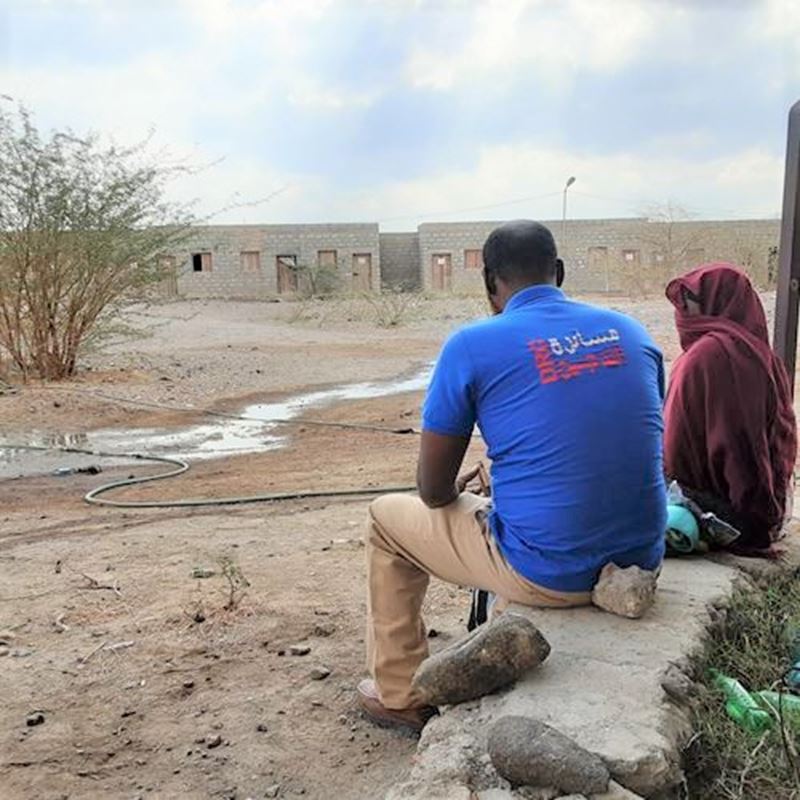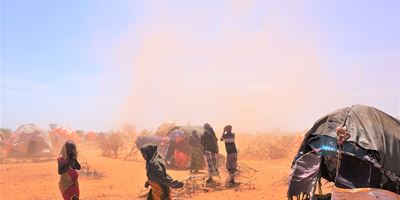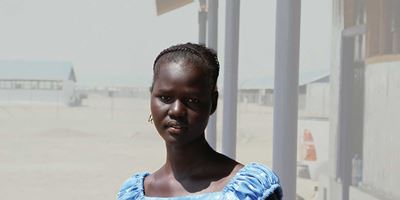
A dream becomes a nightmare: Amal's dangerous journey through Yemen
Drought and hunger in the Horn of Africa push hundreds of thousands of people onto one of the most dangerous migrant routes in the world - through civil war-torn Yemen. 19-year-old Amal wanted to make life better for her family. Today, she is scarred for life by what she experienced on her journey.

Amal still fears for her life, so we don't show her face, and Amal is not her real name. DRC Yemen
Dreaming of security
Amal comes from a poor family in Ethiopia. Her father is a shepherd and the sheep are the family's only source of income. Life is tough for the small family at the moment, as the country is suffering from a widespread and prolonged drought, putting the population in life-threatening conditions.
Thousands have died of starvation and famine-like conditions are present in large parts of the Horn of Africa, of which Ethiopia is a part. Nearly 24 million people lack water and more than 5.5 million children under the age of five are acutely malnourished. Millions of people have left their homes in desperate search of food, water and pasture for their livestock.
Since 19-year-old Amal was little, she has dreamed of making life better for her family. One day she heard that some of her distant relatives had traveled to Saudi Arabia, where they were doing well. She decided that this was the time for her to do the same.
Amal's family was supportive and managed to collect 4,000 Birr (around €70) for some human smugglers to help her during the journey that she took along with a cousin.
"We traveled for 40 days from Ethiopia to Djibouti, where we each paid 4,000 Birr to the smugglers to take us to Yemen. We were were 70 people in a boat, most of them women."
Amal
Kidnapped and abused
Migrants face many dangers when traveling through Yemen, which has been in the grip of a violent civil war for nearly a decade. Threats to life and human rights violations in the form of targeted attacks, human trafficking and arbitrary arrests are far from uncommon.
Girls and women are particularly vulnerable, and at serious risk of sexual exploitation and abuse.
But Amal was unaware of the challenges that awaited her on her journey, and initially, it went as planned. She and her cousin made it to the neighboring country of Djibouti without any problems, from where they were to sail to Yemen. But this is where things started to go wrong.
"I had a small bag with some clothes and a few important things. When we got to Djibouti, the smugglers threw all our belongings into the sea so they wouldn't weigh down the boat," she says.
Amal and her cousin were taken to southern Yemen in a boat filled to the brim. So far, so good, but shortly after arrival they were kidnapped and separated. Amal was alone. She was taken to a mountainous area, where she was detained and verbally abused. Her family was extorted for ransom.
"We were given one meal a day and that was rice," she recalls of her time in captivity, which she spent with a number of other female migrants who had also been kidnapped.
After a month, Amal broke down. She started crying constantly and begging her captors to release her. Having gotten nothing out of blackmailing Amal's impoverished family back in Ethiopia, the kidnappers decided to release her along with two of the other captured women.
"I panicked and couldn't sleep. I ended up running out of the village alone. I didn't know where to go. All I wanted was to get away."
Amal
Suffering from panic attacks
Alone and with nothing of value in a foreign country, Amal and the other two women didn't know where to go. They didn't know anyone who could help them. They started walking and as night fell, they entered a village to find shelter for the night.
But Amal could not find peace. The voices of the people in the village reminded her of the voices of the kidnappers and she was gripped by fear.
"I panicked and couldn't sleep. I ended up running out of the village alone. I didn't know where to go. All I wanted was to get away," Amal remembers.
The next morning, a couple of local Danish Refugee Council staff found Amal on the side of the road. Her clothes were in tatters and she was clearly marked by hunger and overexertion.
Amal was brought to safety and our team provided first aid and provided her with food, water, clothing and hygiene items. She was also able to contact her family in Ethiopia, who were overjoyed that she was alive.
"I just want to return to my home. That's all I want now."
Amal
One dream left
The widespread drought in the Horn of Africa has pushed millions of people into a desperate search for food, water and safety. Many, like Amal, are heading to Yemen to try and make their way to Saudi Arabia and other Gulf states.
The journey through the civil war-torn country is not only one of the world's busiest migrant routes, but also one of the most dangerous. Many migrants, like Amal, end up being violently abused and robbed of their valuables, leaving them unable to move on.
DRC is one of the largest humanitarian organizations in Yemen. We provide emergency relief and long-term solutions for internally displaced people, refugees and migrants, but there is an urgent need for support to help more vulnerable migrants like Amal.
Despite the bleak situation back home in Ethiopia, Amal is so scarred by her traumatic experiences that she now has only one dream left:
"I just want to return to my home. That's all I want now."
Below you can read more about the drought in the Horn of Africa and what you can do to help families like Amal's so they don't have to risk their lives on one of the world's most dangerous migrant routes.

